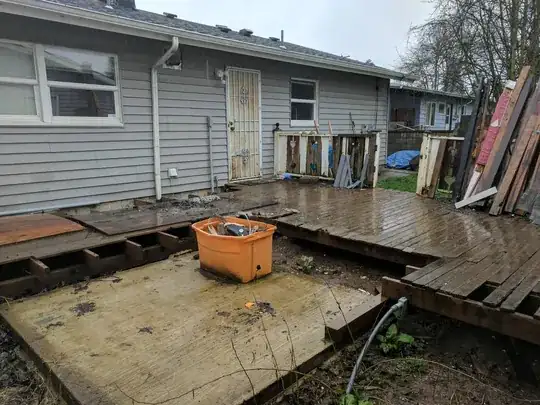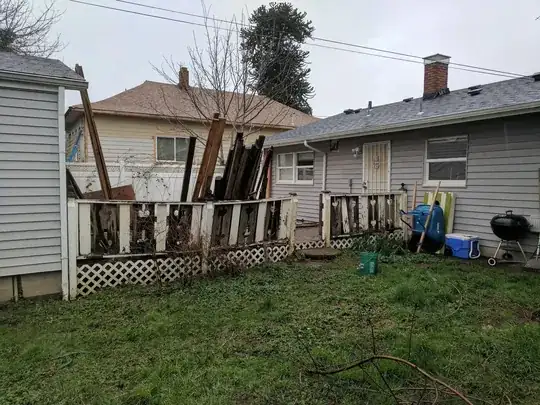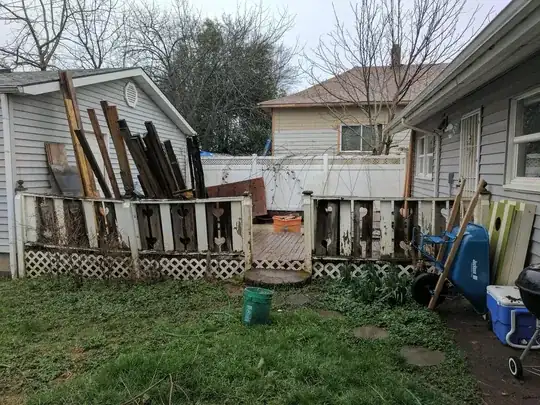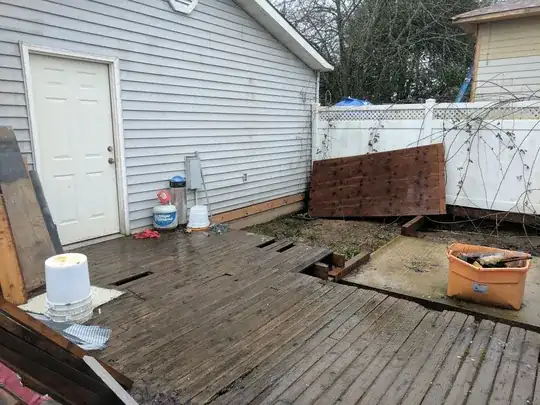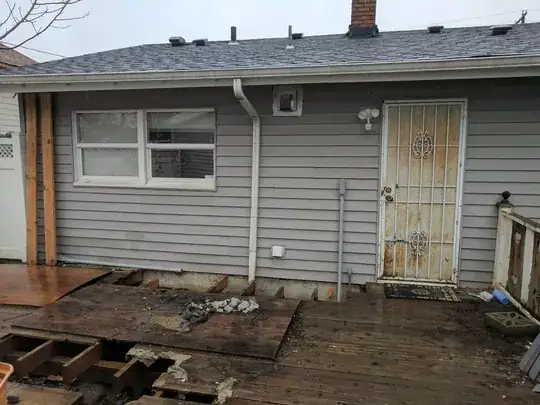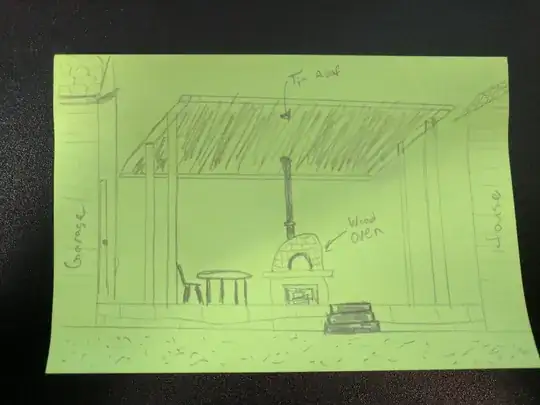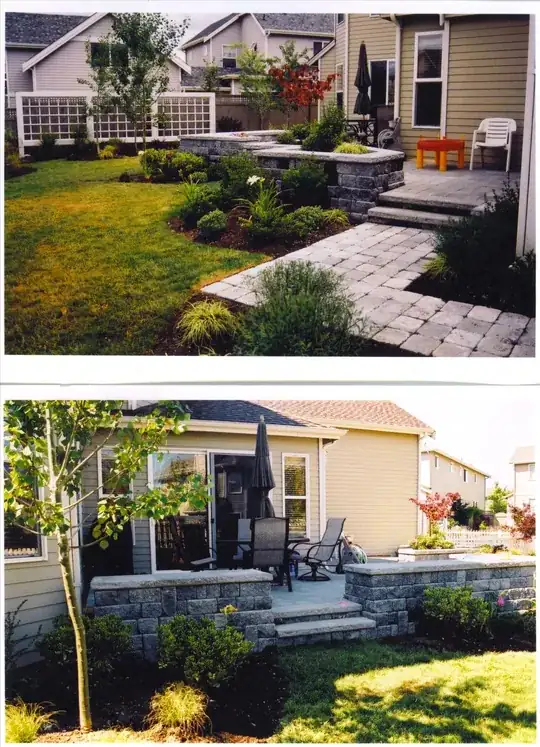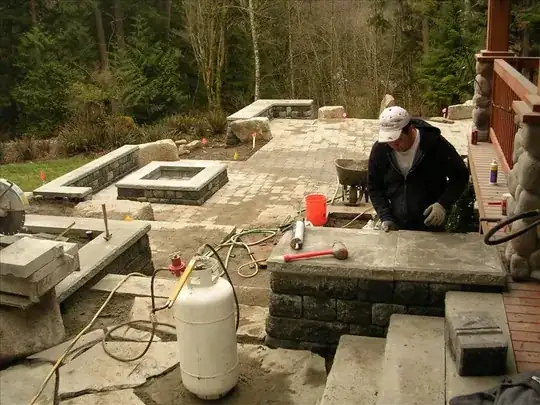I'm gearing up for a bunch of landscaping at my new home. The backyard is kind of a mess: rotted-out deck, terrible lawn, low spots, high spots, etc. It's mostly all going to get redone.
This question pertains to the current deck area. The deck is getting ripped-out as it's not salvageable. The area is ~24' x ~25' so it's almost a square. It sits in between the house and a garage in the back, so there is the foundation of the garage and house on two ends of it. The ground level below the deck is about 1' below the grade of the house and garage. My plan is to build up the grade in this area so that the ground is more level with the house and garage doors. I then plan to build a roofed pergola to cover it and make this into a patio area with a wood-fired oven in the middle. The ground under the pergola will be a majority of gravel, with pavers placed in the most-used areas.
To build this plot up ~1 foot higher, I think I need around 21 cu. yds. of substrate but I'm not sure what the best type of substrate to use is. The current ground is relatively hard-packed soil. I haven't dug down too much but judging from my neighborhood, there should be a bit of clay and kind of gravelly, dark, rich soil. It's quite compacted so I'm not worried about it settling too much. What would be the most cost-effective way to fill in this area? I believe I'll have to build small retaining walls on the two ends of the square that are not backed by the house and garage. I will also be sure to make small "egress" areas so that my crawlspace vents do not get covered up.
